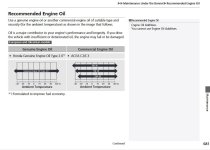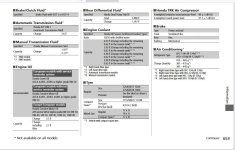I've read a post on the toyotanation site on 0W-16 being speced for 2018+ Toyota Camry's. They have photos of the Toyota owner's manuals in Europe and Australia for the same engine specing 5W-30. High Temperate / High Sheer (HTHS) is connected with engine wear protection. The lower HTHS numbers the more engine wear. The HTHS numbers for 0W-16 are scary. Even the HTHS from 0W-20 are borderline.

www.toyotanation.com
When Ford switched from 5W-30 to 5W-20 years ago, they had a huge problem with increased timing chain wear.
The whole move to thinner oils is not to improve engine protection. Instead it's to save automakers money by reducing fines from the EPA over CAFE. The benefit in fuel economy is not measurable on an individual car, but the tiny fraction adds up over a fleet of hundreds of thousands of cars. The automakers don't care about engine wear after the car's warranty expires. They only care about avoiding the CAFE fines.
Thiner oils have much lower HTHS numbers. Thin oil's achilles heal is higher engine temperatures. Higher temperatures can occur when idling the car for extended periods on a hot day with the air conditioning on when the car is parked. Also, during extended stop and go driving on a hot day with the air conditioning on. Engine temperatures rise higher even with a healthy coolant system.
I understand and respect those people following their owner's manual recommendation on the ultra low viscosity oils 0W-16 and even 0W-20.
The best thing about car ownership is that you are the captain of your own ship, and you can make your own decision about which oil protects your engine the best.
I like to keep my cars for a very long time. I'd like to get 300k miles out of my cars, and protecting the engine is my primary concern.
After reading the entire toyotanation thread, and also after reading about the Ford Timing chain wear due to the switch to from 5W-30 to 5W-20,
I've decided to only use 5W-30 synthetic in all of my vehicles for better protection of the engine. It's such a great feeling of independence to ignore CAFE and it's forcing of automakers to go to thin oil at the expense of engine wear. It feels like July 4th, Independence Day!

 360.lubrizol.com
360.lubrizol.com





